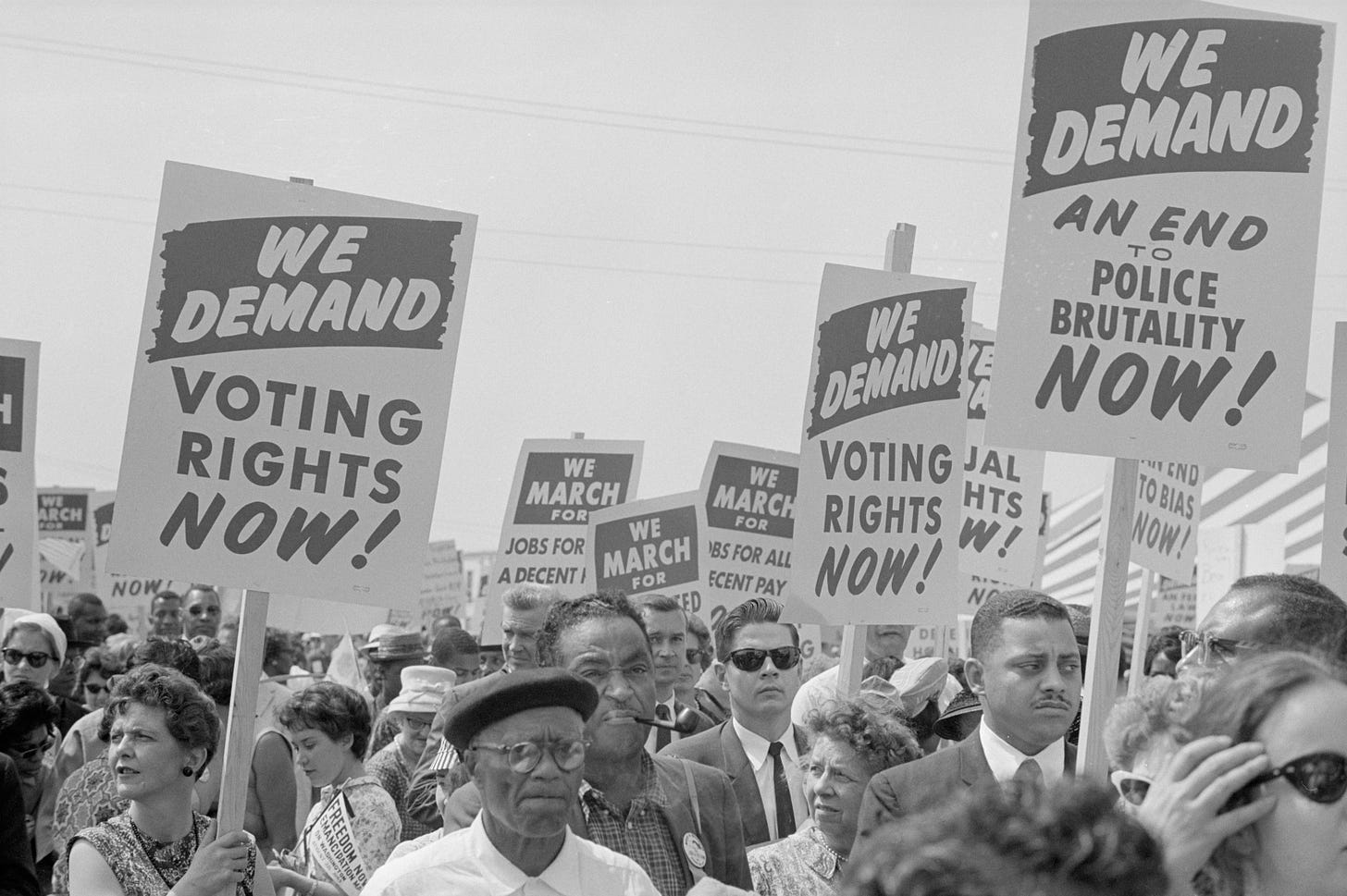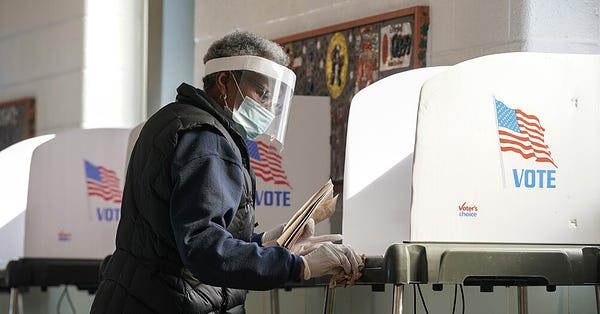
I knew Jim Crow.
I was born into its time, lived it, and reported on it.
I saw monumental laws attack it and seek to kill it.
But Jim Crow still lives, if under an alias because the original name has rightly become so repugnant.
Jim Crow was a series of laws, written without shame, that publicly pronounced white supremacy and strict separation of the races. It was institutionalized racism backed by law. Many of the manifestations of Jim Crow are gone now. On the surface, the full architecture of Jim Crow has been dismantled. But at the heart of Jim Crow was the bedrock belief that whites should not have to share, let alone cede, power to Blacks. There are many legacy structures of that which remain, from housing, to education, to financial resources, and beyond. But for the sake of today’s discussion let us focus on one that undergirds all the others: the right to vote.
In our democratic republic, voting is how we register our voice. It is our tool of accountability. It is the very definition of full citizenship. Women and men have literally died fighting for the right to vote. And the opponents of representative democracy, those who believe that they should not be subject to the will of the people, especially if that will is predicated on Black and brown voters, understand that their very power rests on curtailing the vote.

The insurrection —in effect, an attempted coup— on January 6 was about the vote. It was about nullifying a historic majority of voters across the country, and a sizable victory in the Electoral College. It is not a coincidence that to a person, almost all of the rioters were white. When Trump exhorted “make America great again,” the implications were as subtle as a sledgehammer to the head. He was thinking of a time when Black people and other racial, ethnic, and religious minorities, as well as women, didn’t occupy the corridors of power in any large numbers. He was yearning for an America when many Black people couldn’t vote in practice, no matter what the Constitution said.
In the wake of Trump’s loss, and particularly the stunning senate races in Georgia, it is not surprising that Republicans in many states (especially Georgia) would turn back to sweeping voter suppression efforts.


Never mind that actual cases of “voter fraud,” which they sought out to undermine the legitimacy of the election, proved to be virtually non-existent —notable considering the number of votes cast.
No, this isn’t about election integrity. It is about holding on to what could be the last wisps of a power based on fear, disenfranchisement, and other anti-democratic measures like gerrymandering. The trend lines are clear. The American electorate will increasingly become less white in the years and decades to come. This is not just happening in a few “blue states” but more broadly across the country. And this isn’t only about race, it’s also about a geographic imbalance that favors Republicans with many Democratic white voters also concentrating in urban areas. It’s about hundreds of thousands of residents in Washington, D.C. having nothing but token representation in Congress, even though its population equals that of several states.


The beloved Civil Rights leader, the late John Lewis, would have turned 81 this past weekend. He was a friend and an inspiration to me, the very definition of courage. He understood that the right to vote was the basis for hope and change. At the 2012 Democratic convention, where Barack Obama was nominated to run for a second term, Lewis said, “My dear friends, your vote is precious, almost sacred. It is the most powerful, nonviolent tool we have to create a more perfect union." One of Lewis’s final missions was to promote a new bill on voting rights in the last Congress. Democrats want to resurrect it now and name it after him.
Another man I knew professionally and covered, Medgar Evers, didn’t live to see the day a Black man was elected president. His efforts to enfranchise his fellow Mississippians ended in 1963, when he was assassinated from ambush outside his home, his wife and children inside.

Make no mistake, this is the legacy in which those who are throwing up impediments to voting today are trafficking. It is a legacy of violence, cruelty, and injustice. It is the very opposite of democracy. We should encourage more voting, not suppress it. We had a remarkably free and fair election in 2020, one that saw record numbers of Americans go to the polls on both sides of the political divide. We should be building off of this success, with more access, more options for voting, more outreach. If we don’t, Jim Crow will continue to haunt and harm us.
We are a healthier and stronger nation when more people vote. Democracy depends on the accountability of elected officials. It depends on a marketplace of ideas adjudicated through the electoral process.
I suspect in the end these cynical, destructive, and racist voting restrictions may backfire. They may enrage those they seek to suppress, and all those who believe America should be a functioning democracy. The press, public officials, and the rest of us need to call out these efforts, and indeed many people are. But in doing so we should not be afraid to say the name that is father to these latest injustices: Jim Crow.
—Dan
Please consider subscribing to STEADY, if you have not already. Our goal is to build a vibrant digital community —the more voices, perspectives, and viewpoints that can add to the conversation, the merrier.



I know Him Crow, Jim Crow was an enemy of mine. We must fight back against any attempt to being those ideas back.
I didn't assume We referred to white people but We Americans!